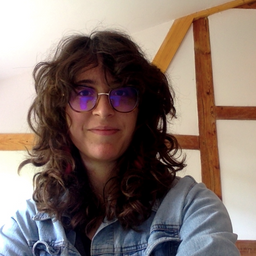The creative city despite the Creative City. Key factors for sustainable arts-led regeneration programs
Mon statut pour la session
The concept ‘arts-led regeneration’ is nowadays one of the trendiest slogans for the transformation of contemporary cities. Despite this fact, it has been observed that, usually, implemented policies are far from meeting the expectations and promises made on paper. In that sense, we argue that the term ‘arts-led regeneration’ is commonly misused or overused.
This type of regeneration can be connected with Richard Florida’s theories concerning the ‘Creative City’, a concept broadly contested by academics, artists and other cultural agents. Despite persistent criticisms, the links between culture, creativity and the city have become indeed the inspiration for many postindustrial societies, especially for those who have a highly industrial past. The deployment of these transformations is commonly justified by the transformative power attributed to arts and culture, but the reality is that there is a lack of effective systems to evaluate to what extent this assumption is true –or what factors are needed for it to be true. At the same time, and along with this claimed transformative power, arts and artistic communities have often been connected to or used in gentrification processes. However, there are some cases where the artistic community has played an active role against the gentrification of the territory.
What makes arts, culture and creativity a sustainable driving force for urban regeneration, able to avoid all negative effects connected to Florida’s theories –such as gentrification, polarisation and commodification of arts and culture?
Despite the lack of effective valuation systems in this field, research has pinpointed two key factors to make a urban culture-led regeneration sustainable –where sustainability is understood as the interrelation between social, cultural, economic and environmental aspects that warranty a long-term continuity of the project.
These two key factors are the following:
I) respect for the “pre-existences”: pre-existing social, built and productive tissue of a territory needs to be taken into consideration when a transformation is designed.
II) implementation of a bottom-up transformation: it has been proved that involving the local population in the decision-making process and the execution of the transformation is essential to ensure the viability of the regeneration (Scott, 2008), to the point that “cultural developments succeed depending on how well they engage with local communities and cultures” (Miles & Paddison, 2007, p. XIV). That’s why it has become less and less common to plan and develop this kind of transformations relying solely on a committee of experts (Riganti & Throsby, 2021).
Based on this theoretical framework, we have conducted a case study in the district of Sant Martí (Barcelona) based on field research that included visits to former industrial buildings that have been transformed into artistic venues and interviews with some agents in charge of these venues.
The district of Sant Martí –traditionally the industrial center of Barcelona –has overcome in the last two decades a very controverted regeneration through the 22@ Plan. Academic literature has given much attention to this process. However, very little attention has been paid to the intersection between this controverted plan and the artistic project creation fabrics, a project inspired by a previous initiative led by local artists and neighbours’ claims. In this paper, we compare both plans and we assess their sustainability evaluating the way they have been implemented (top-down vs bottom-up) and the respect they have manifested towards the preexistences and identity of the territory. We conclude that arts can have a real and positive impact and therefore be a driving force for urban regeneration when these two key factors are taken into account.
